All of our course speakers are carefully selected to meet the criteria of being top experts in their fields and excellent communicators
For each topic, the ESTIV training course collaborates with at least 2–3 experts who can alternate in case one of the speakers is unavailable
Most of the speakers have lectured at our training courses since its establishment. We may invite new experts with a high level of technical knowledge and presenting skills for specific state-of-the-art topics. The high quality of ESTIV speakers is the crucial element of the ongoing success of the course.
Find the speaker’s short profile below with a link to their personal or academic webpage.
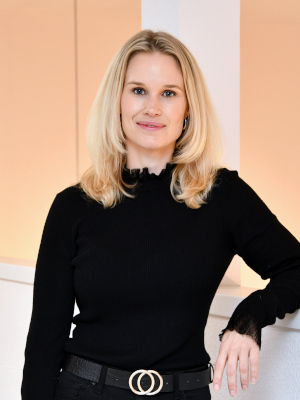
Emma Arnesdotter
Emma Arnesdotter is a researcher at Luxembourg Institute of Science and Technology. Her research interest is focused on the development, characterisation and use of in vitro co-culture models of the lung, intestine, skin, and liver, as well as toxicity studies after application of chemicals (with a particular focus on per- and polyfluorinated compounds (PFAS) and other persistent organic pollutants) within these models. She is currently involved in several European projects, including SCENARIOS, CHIASMA, and PARC, as well as an EFSA-funded project aiming to establish and demonstrate an analytical and bioinformatic standardised workflow for safety assessment of food and feed related chemicals, which will allow to derive reliable human reference points and health-based guidance values, using a fluidics-enabled cell culture system.
More at: https://www.linkedin.com/in/emma-arnesdotter-947082105/edit/forms/next-action/after-connect-add-position/
Bas Blaauboer
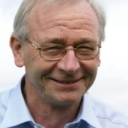
Bas Blaauboer received an MSc in biology and a PhD in toxicology at Utrecht University-The Netherlands. He led a group on in vitro toxicology at Utrecht University-The Netherlands. In 2008, he was appointed the Doerenkamp-Zbinden Chair on Alternatives to Animal Testing in Toxicological Risk Assessment. Currently, he serves in the position of President of ILSI Europe. His research is focused on the use of in vitro toxicity data in combination with computer modelling as tools in risk assessment. He is the author or co-author of over 200 scientific papers, editorials and book chapters. He received a number of scientific awards. Since his retirement, he acts as a consultant, giving advice on the implementation of non-animal methods in risk and safety assessment strategies.
More at: www.uu.nl/staff/BJBlaauboer
Sabina Burla
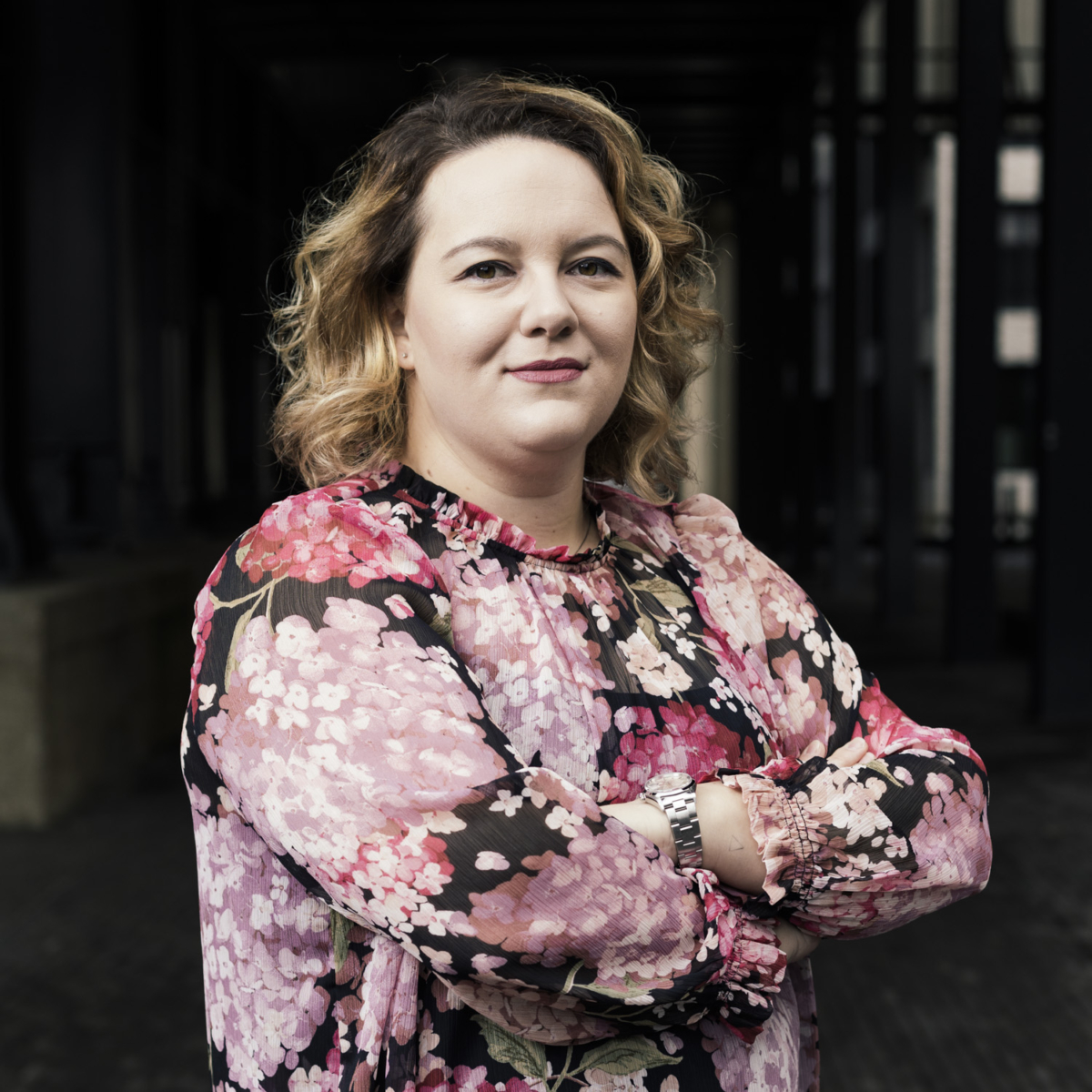
Sabina Burla is a distinguished scientist specializing in toxicology and in vitro modelling. She earned her master’s degrees in Pharmacy and Drug and Environmental Toxicology from “Iuliu Hatieganu” University of Medicine and Pharmacy in Cluj-Napoca, Romania. Her activities in the field of inhalation toxicology focused in developing innovative 3D alveolar in vitro models to predict respiratory sensitization and irritation, contributing significantly to reducing animal testing in research. Her work has been recognized with the European Society of Toxicology In Vitro (ESTIV) Best Poster Award at the 11th World Congress on Alternatives and Animal Use in the Life Sciences in 2021. Currently, she serves as the Chief Scientific Officer at Invitrolize, a spin-off from the Luxembourg Institute of Science and Technology, where she continues to advance in vitro methodologies for respiratory toxicology. Sabina actively participates in international conferences and workshops, sharing her expertise on new approach methodologies in toxicology.
More at: https://www.linkedin.com/in/sabinaburla/
Diana Cervantes

Diana Cervantes received an honorary PhD degree in Biomedical Sciences at the National Autonomous University of Mexico (UNAM), her work was focused on metabolic therapy against cancer at the preclinical stage. In 2016, she started a postdoctoral fellowship at the University of Gothenburg studying genetic changes in neuroblastoma patients that could be used as therapeutic targets. She has published her academic work in scientific journals such as Science Signaling. In 2019, she started to work at CELLINK as an application scientist, working in collaboration with other teams in the R&D department to develop cutting-edge instruments. Currently, she works at CELLINK as a senior cell biologist developing 3D bioprinted tissue models that can replace animal models.
More at: https://www.linkedin.com/in/diana-cervantes-madrid-013185108
Sandra Coecke
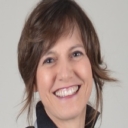
Sandra Coecke is a senior scientist at EURL-ECVAM. In 1989, she earned a Degree of University Engineer Biotechnology followed by PhD degree in Pharmaceutical Sciences. She joined in 1993 the Pharmaceutical Company Janssen Pharmaceutica in Beerse-Belgium, leading the In Vitro Toxicology laboratory. In 1994, she was awarded the European Price from the Foundation for the Substitution of Animal Experimentation in Luxembourg. She published over 100 in vitro toxicological papers. At the EC-JRC, she established international accepted quality standards and good in vitro method practices. She managed the European Union Network of Laboratories for the Validation of Alternative Methods (EU-NETVAL), 35 high-quality laboratories across Europe and coordinates and coordinated a large validation study with 17 mechanistic methods for the detection of chemicals that may disrupt normal thyroid function. She has received the Björn Ekwall Memorial Award (BEMA) winner 2020/2021 for the development and validation of new in silico & in vitro cell- and tissue-based NAMs methods for toxicity testing. At the EC JRC, she currently acts as a multi-stakeholder horizontal team leader for Farm to Fork (Feed & Food) models and methods for One Health. She published over 100 peer scientific publications and book chapters and lectured around the globe and published recently a major EC JRC study exploring how by using new innovative technologies based on human biology cell and tissue and mathematics-based methods better understand the Covid19 disease.
More at: https://www.linkedin.com/in/sandra-coecke-00b68542/
Chantra Eskes

With a background in food sciences engineering obtained in France and a Ph.D. on in vitro neurotoxicity obtained in Switzerland, Chantra Eskes has over 20 years of experience in the development, optimization, validation, peer-review, and regulatory acceptance of alternative methods to animal testing. Working initially at EURL-ECVAM, Chantra then provided consultation services on alternative methods for intergovernmental organizations, regulatory bodies, industry associations, and academia. Her activities contributed among others to the successful validation, peer-review, and international acceptance of over 15 alternative methods and approaches to animal testing. Chantra is the chairwoman of the EURL-ECVAM Scientific Advisory Committee (ESAC) and also acts as a Swiss Nominated Expert for OECD expert groups related to alternative methods to animal experimentation. She has been the president of ESTIV from 2012 to 2016. Finally, she is editor, author, and co-author of over 60 scientific publications, including the following books published by Springer: ‘Validation of Alternative Methods for Toxicity Testing’ (2016) and ‘Alternatives for Dermal Toxicity Testing’ (2017).
More at: https://www.linkedin.com/in/chantra-eskes-85667315/?originalSubdomain=ch
Ellen Fritsche
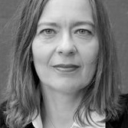
Professor Ellen Fritsche, MD, holds a professorship for Dermatotoxicology within the Clinic for Dermatology and Allergology at the RWTH Aachen. She has a joint affiliation with the Institut für Umweltmedizinische Forschung (IUF) in Dusseldorf where she leads the group of Molecular Toxicology. Within her two research topics (brain and skin) she focuses for the first on the effects of xenobiotics (e.g. endocrine disruptors) on human brain development in vitro by applying a ‘neurosphere model’. Moreover, Pr. Fritsche investigates the molecular grounds for species differences in neural progenitor cell development and responses to xenobiotics. In skin, she investigates enzymatic activities of xenobiotic metabolizing enzymes in human skin and skin cell-derived in vitro models. Additionally, she investigates the consequences of arylhydrocarbon receptor activation in skin cells. For this research she uses mainly primary human cells and employs modern techniques like shRNA-based gene silencing.
More at: https://www.linkedin.com/in/ellen-fritsche-b7292714b/?originalSubdomain=de
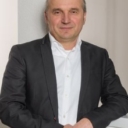
Arno Gutleb
Arno Gutleb graduated from the University of Veterinary Medicine Vienna-Austria, holds a PhD in Environmental Sciences from Wageningen University-The Netherlands and is a European Registered Toxicologist. He is Distinguished Professor at the University Iuliu Hatieganu at Cluj-Romania and Visiting Professor at the Universidad Andrés Bello at Santiago de Chile-Chile. He is author of more than 180 journal publications. Currently, he is Group Leader Environmental Health at the Luxembourg Institute of Science and Technology.
More at: https://www.linkedin.com/in/arno-gutleb-22220b4/?originalSubdomain=lu

Giel Hendriks
Giel Hendriks is the founder and CEO of Toxys. As CEO of Toxys, he worked to develop the company into an internationally recognized contract research organization (CRO) in chemical safety testing for industry. He has developed various in vitro assays to ensure the safety of novel medicines, chemicals and consumer products without the use of animals. He is an expert in genetic toxicology and has been co-chairing various expert working groups at the HESI GTTC and is the current president of the Dutch Environmental Mutagen Society. Giel has a PhD in molecular cell biology from Utrecht University and worked as a post-doctoral fellow in at Leiden University and Leiden University Medical Center.
More at: https://www.linkedin.com/in/toxys/?originalSubdomain=nl
Helena Kandárová
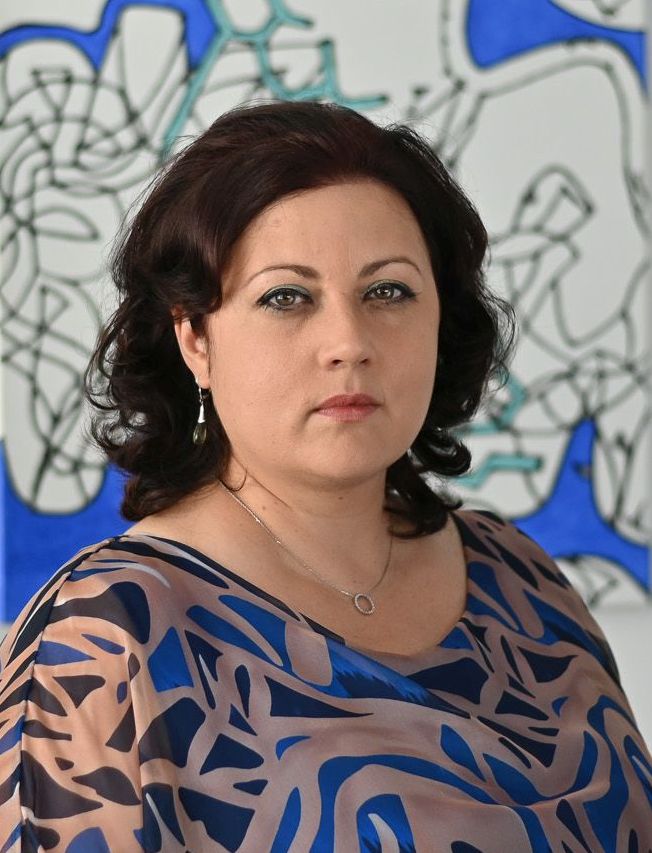
Helena Kandárová is a Director of the Institute of Experimental Pharmacology and Toxicology at the Centre of Experimental Medicine, Slovak Academy of Science and a lecturer at the Faculty of Chemical and Food Technology, STU. Her scientific interest is focusing on developing and validating in vitro methods. She has been involved in international projects aiming to validate 3D reconstructed human tissue models for topical toxicity testing of chemicals, cosmetics, pesticides and medical devices. She is a co-author of several OECD Test guidelines on topical toxicity testing. Helena has been a President of ESTIV since 2020, vice president of SETOX, chair of the Slovak National Platform for 3Rs, member of EPAA MG, former chair of the EUROTOX communication committee and member of several other international organisations interested in NAMs. She established and led MatTek IVLSL in the EU for 10 years. Helena is the recipient of the 2021 Doernkamp-Zbinden Prize (DZP) and the Björn Ekwall Memorial Award (BEMA) 2022 for her contribution to developing and validating NAMs for topical toxicity testing. She worked (pro bono) as the National Coordinator of the OECD Test Guidelines programme between 2010-2012 and is active as the National expert in the OECD expert groups.
More at: www.helenakandarova.com
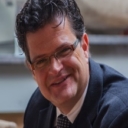
Theo de Kok
Theo de Kok is a professor in population-based toxicogenomics affiliated to Maastricht University-the Netherlands, where he is active in the school of Oncology and developmental Biology and the Maastricht Center of Systems Biology. He has a background in toxicological sciences and is a European Registered Toxicologist. His expertise lies in the field of human exposome research and toxicological studies in human cell cultures, particularly liver and colon. His research addresses exposures related to food, environment, drugs and cosmetics. He has been involved in several (inter)national (in vitro) toxicology projects, initiatives and societies.
More at: https://toxicogenomics-um.nl/staff/Theo-de-Kok
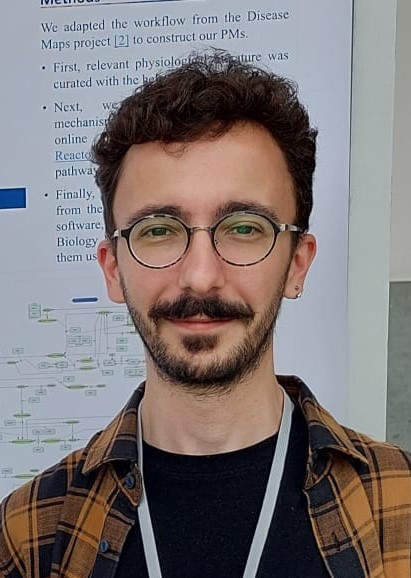
Luiz Ladeira
Luiz Ladeira is a postdoctoral researcher at the Biomechanics Research Unit, GIGA Institute – Molecular and Computational Biology, University of Liège, Belgium. He is a trained nutritionist and holds an MSc and PhD in Cell and Structural Biology from the Federal University of Viçosa (UFV), Brazil. His recent research, mostly in the ONTOX project, is focused on supporting NAMs development by setting the physiological grounds for Adverse Outcome Pathways building and refinement, computational modeling rationale, and ontology maps construction. Luiz volunteers at the VPH Institute and the Avicenna Alliance , advocating for in silico methods in healthcare and research. Luiz recently joined the ESTIV board to continue promoting alternative methods in toxicology and help shape the next generation of toxicologists through the ESTIV Early Career Network.
More at: https://www.linkedin.com/in/luizladeira/
Silvia Letasiova
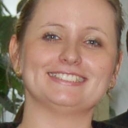
Silvia Letasiova is the managing director and senior scientist at MatTek In Vitro Life Science Laboratories at Bratislava-Slovakia. She has a background in biochemistry and microbiology, and holds a doctoral degree in biochemistry. Since 2008, she actively works on the development and validation of assays aiming at the reduction and replacement of in vivo testing. She is a member of US SOT, ESTIV, SETOX and EUSAAT. She is a co-author of more than 30 publications and has presented the innovative science in more than 75 oral and poster presentations at national and international meetings.
More at: https://www.linkedin.com/in/silvia-letasiova-406236b6/?originalSubdomain=sk
Jochem Louisse
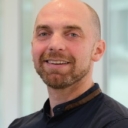
Jochem Louisse works as a toxicologist at Wageningen Food Safety Research-The Netherlands. He has a background in biology, holds a doctoral degree in Toxicology and is a European Registered Toxicologist. In his research, he combines in vitro toxicology data and physiologically-based kinetic modelling to predict in vivo toxicity. Also, he works on the application of mode-of-action-based bioassays to detect and prioritize chemicals in food.
More at: https://www.wur.nl/en/Persons/Jochem-dr.ir.-J-Jochem-Louisse.htm
Jan Markus
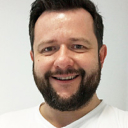
Jan Markus is production manager and senior scientist at MatTek In Vitro Life Science Laboratories at Bratislava-Slovakia. He has a background in molecular biology and virology, and holds a doctoral degree in experimental oncology. He is responsible for the production and further development of reconstructed tissue models of small intestine. Also, he is actively involved in the development and validation of new tests aimed at the reduction of in vivo testing. His areas of expertise include cell and tissue cultures, molecular biology, transcriptional gene regulation and oncology.
More at: https://www.linkedin.com/in/jan-markus-7701527/?originalSubdomain=sk
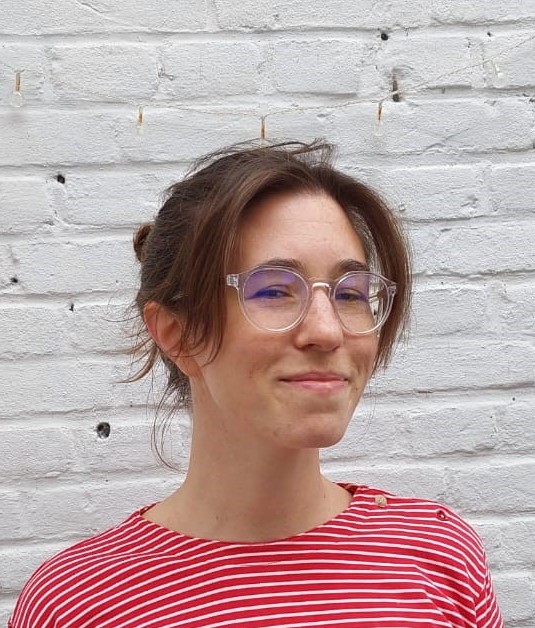
Susana Proença
Susana Proença is a researcher specializing in the integration of vitro and in silico toxicology, with a focus on toxicokinetics and quantitative in vitro-in vivo extrapolation (QIVIVE). Her work has spanned across several institutions, including ECVAM in the European Commission’s Joint Research Center, Institute for Risk Assessment Sciences in the Utrecht University (where she did her PhD), and the Toxicology department in the Wageningen University. Currently, she leads the toxicokinetics work package within the EU ONTOX project at ESQlabs. In this projects, Susana is developing PBPK models and QIVIVE framework for six disease-ontologies focusing on the liver, kidney and developmental neurotoxicity.
More at: https://www.linkedin.com/in/susana-proen%C3%A7a-70260671/?originalSubdomain=pt
Alicia Paini
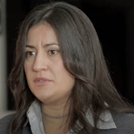
Alicia Paini, ERT, holds an MSc degree in Food Science, Technology and Food Safety. She performed her PhD in Toxicology at the Nestlé Research Centre (Switzerland), developing physiologically based kinetic (PBK) models for genotoxic chemicals. For 9 years she worked on developing, implementing and promoting in silico tools for next-generation risk assessment at the EC-Joint Research Centre. She contributes to more than 70 peer-reviewed articles in the area of alternatives to animal testing. In order to translate the science to policy and make the policymakers trustful of model simulations, she led efforts at the OECD to draft guidance on how to Characterize, Validate, and Report PBK Models. As of October 2021, she joined esqLABs GmbH, as a Principal Scientist, lead Systems Toxicology, where she will continue her work in developing, applying and promoting in silico approaches in science and for regulatory purposes. Currently, she is part of the EU-funded ONTOX project (leading WP4 on the kinetic domain) and three EFSA procurement in the area of exposure and kinetics.
More at: https://www.linkedin.com/in/alicia-paini-b969baa/
Tommaso Sbrana

Tommaso Sbrana is a biomedical engineer and has a PhD in bioengineering. In the last 15 years, he focused the attention on the development of new tools to overcome the limitation of standard in-vitro models. He is co-inventor of 4 granted patents. In 2014, after 2 years of postdoc at the University of Pisa, Italy, he founded IVTech srl, in collaboration with other colleagues. Since that date, Tommaso is the CEO of the company. In the same year, he started a Business Development Academy, organized by Dipartimento di Scienza ed Economia Aziendale dell’Università di Pavia e Health Care Licensing Group (HLG). In 2016, he attended the “Unicredit StartLab”, an acceleration course, organized by Unicredit for new companies and start-ups. In 2017, Tommaso won the national competition called “Inarcassa premia le idee”, organized by Inarcassa, promoting one of the patented idea that is currently part of the IP portfolio of IVTech. In 2019, Tommaso obtained the degree of Project Manager (accredited by ISPM). In 2020, Tommaso obtained the degree of eU-MAPS project cycle manager (accredited by ISPM).
More at: https://www.linkedin.com/in/tommaso-sbrana/
Isabel Rütschle

Isabel Rütschle is Technology Specialist and Team Lead Central Laboratory at TissUse GmbH, Germany. She obtained her Master of Science in Biomedical Engineering at the TU Berlin, Germany. Since 2016, Isabel has been involved in the development of a Multi-Organ-Chip/ Human-on-a-Chip platform technology for culture analysis of drug candidates, cosmetics, chemicals and consumer products. Her work includes the support in executing various customer projects, developing as well as adapting different organ models on the “HUMIMIC Chips” and conducting global product training courses with technology transfer for customers.
More at: https://www.linkedin.com/in/isabel-r%C3%BCtschle-32183273/
Jens Christian Schwamborn
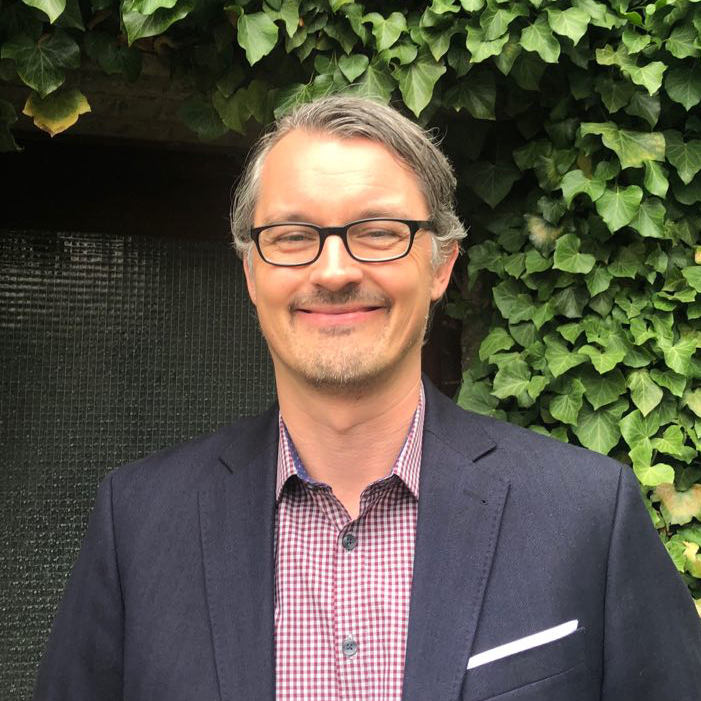
In 2002 Jens obtained a diploma in Biochemistry from the University Witten/Herdecke in Germany and in 2005 a PhD in Biology from the University Muenster in Germany. He worked as a postdoctoral researcher at the Institute for Molecular Biotechnology in Vienna / Austria. Since 2013 Jens is head of the Developmental and Cellular Biology group at the Luxembourg Centre for Systems Biomedicine (LCSB) as well as Professor at the University of Luxembourg. 2019 Jens Co-founded OrganoTherapeutics SARL, where he currently acts as CEO. Before he was co-founder and CSO of Braingineering Technologies SARL (2016-2018). The focus of his work over the last years was on Neurobiology, Stem Cell research and Parkinson’s disease. In particular he is interested in using human induced pluripotent stem cells for the development of brain organoid and assembloid models, which are used for in vitro disease modeling.
More at: https://www.linkedin.com/in/jens-schwamborn-8a350676/edit/forms/next-action/after-connect-update-profile/
Tomasso Serchi

Dr. Tommaso Serchi is a Principal R&T Associated within the Environmental Health group of the Luxembourg Institute of Science and Technology. He has a background in medicinal chemistry and technology. He obtained a PhD in medical biotechnology and he is an European Registered Toxicologist (Belgian Registry) and holds a habilitation from the Italian Ministry of Education and from the University of Luxembourg. He is a toxicologist with more than 10 years of experience in proteomics and in developing complex 3D in vitro models for a multitude of applications. He coordinates and is partners of several EU projectsn and EFSA projects. Tomasso is the Head of the Luxembourg delegation for the OECD Working Party on Manufactured Nanomaterials (WPMN) and deputy Head of the Luxembourg delegation for the OECD National co-ordinators of the Test Guidelines programme working group. He participates in OECD working groups and experts committees such as those for “Bioacumulation of NanoMaterials” or for “Intestinal fate of orally ingested Nanomaterials”. He is the co-chair of the OECD Steering Group on Testing and Assessment (SGTA). His scientific interests range from toxicology, cell biology and cellular/tissue engineering, regulatory toxicology and, especially, to the development of advanced New Approach Methodologies (NAMs) for bio-medical and toxicological applications. He is the coordinator of the H2020 project PHOENIX (Pharmaceutical Open Innovation Test Bed for Enabling Nono-pharmaceuticals Innovative Products) and of the Horizon Europe project CHIASMA (Accessible Innovative Methods for the Safety & Sustainability Assessment of Chemicals & Materials).
More at: https://www.linkedin.com/in/tommaso-serchi-3b146134/?originalSubdomain=lu
Silvia Scaglione

Silvia Scaglione is the founder and chief scientist of React4life, an Italian biotech company that develops organ-on-chip technologies, and Senior Researcher at the National Council of Research (CNR). Author of more than 100 international peer-reviewed papers, author of 7 patents. Ambassador of the European Innovation Council (EIC), for her capacity to bring basic research results to the market, generating impact for the society. She has also recently won the innovative start-up award of Gamma Donna 2021.
More at: https://www.linkedin.com/in/silvia-scaglione-25784237/
Meike van der Zande
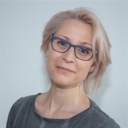
Meike van der Zande works at the Toxicology team at Wageningen Food Safety Research – The Netherlands. She has a background in biology and holds a doctoral degree in tissue engineering. She has worked in the field of toxicology for over ten years working on strategies for hazard assessment and prioritization of chemicals in food and feed. She specializes in the development and application of mode-of-action-based bioassays and complex in vitro models (particularly for the intestine and liver) aiming at the reduction and replacement of in vivo testing.
More at: https://www.linkedin.com/in/meike-van-der-zande-1140421b/?originalSubdomain=nl
Philippe Vanparys
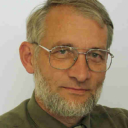
Philippe Vanparys is biologist and obtained his Master in Sciences at the Free University Ghent-Belgium and PhD in Sciences at the Catholic University Louvain-La-Neuve-Belgium. During his 30 year career at Janssen Phamaceutica-Belgium, he was Senior Director Genetic and In vitro Toxicology and Senior Director Mechanistic Toxicology. The last ten years, he was guest professor at the Catholic University Leuven-Belgium. He is European Registered Toxicologist and was involved in several (inter)national genetic and in vitro toxicology societies, and in several workgroups at ECVAM.
More at: https://www.linkedin.com/in/philippe-vanparys-31039030/?originalSubdomain=be
Mathieu Vinken
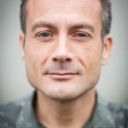
Mathieu Vinken is a full professor affiliated with the Vrije Universiteit Brussel-Belgium and a visiting professor at the University of São Paulo-Brazil. He has a background in pharmaceutical sciences and in vitro toxicology, is a European registered toxicologist and past-president of ESTIV. His research focus is situated in the field of mechanistic and in vitro modelling of liver toxicity. He is editor of a couple of toxicology journals and published more than 200 papers. He coordinates a number of European projects, among which ONTOX, which intends to set up animal-free approaches for predicting chronic toxicity induced by chemical compounds.
More at: www.mathieuvinken.com
Pamina Weber
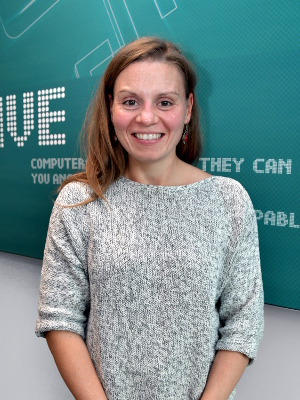
Pamina Weber is a Senior Research Scientist in the Environmental Health group of the LIST’s Environmental Research and Innovation Department (ERIN). She obtained a PhD in Biology in 2015 and has experience in cell and molecular biology. Her current research interest is focused on the development, characterization and use of in vitro co-culture models for the lung, intestine and skin and toxicity studies after application of a large spectrum of chemicals and nano-particles within these models. She is involved in international projects aiming at the validation of New Approach Methodologies (NAMs) for topical toxicity testing of chemicals, and pesticides to perform human and environmental safety evaluation in a regulatory context.
More at: https://www.linkedin.com/in/pamina-weber-667b162b4/?originalSubdomain=de
Servane Contal, Marek Puškár, Aline Chary,
 The ESTIV Members Area
The ESTIV Members Area